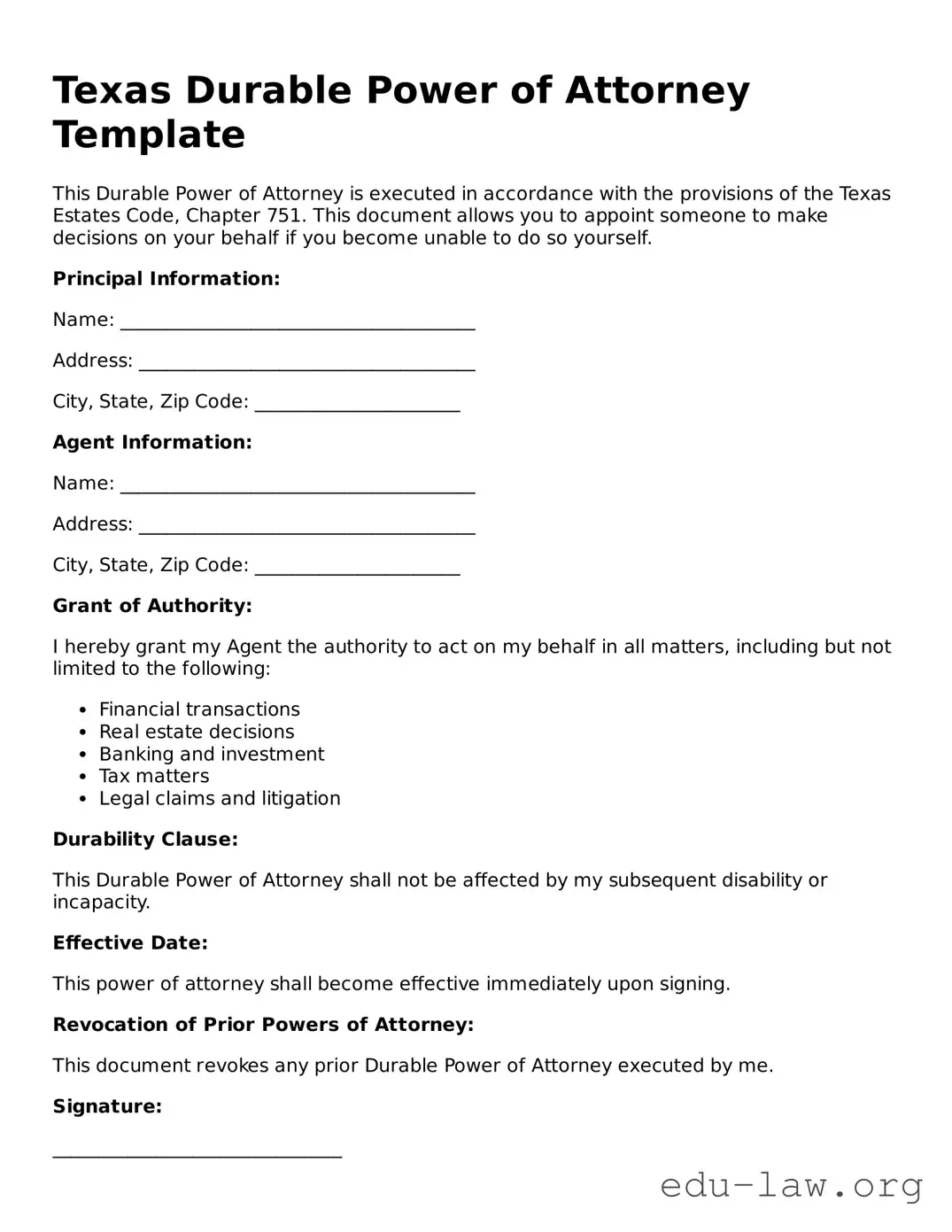Texas Durable Power of Attorney Template
This Durable Power of Attorney is executed in accordance with the provisions of the Texas Estates Code, Chapter 751. This document allows you to appoint someone to make decisions on your behalf if you become unable to do so yourself.
Principal Information:
Name: ______________________________________
Address: ____________________________________
City, State, Zip Code: ______________________
Agent Information:
Name: ______________________________________
Address: ____________________________________
City, State, Zip Code: ______________________
Grant of Authority:
I hereby grant my Agent the authority to act on my behalf in all matters, including but not limited to the following:
- Financial transactions
- Real estate decisions
- Banking and investment
- Tax matters
- Legal claims and litigation
Durability Clause:
This Durable Power of Attorney shall not be affected by my subsequent disability or incapacity.
Effective Date:
This power of attorney shall become effective immediately upon signing.
Revocation of Prior Powers of Attorney:
This document revokes any prior Durable Power of Attorney executed by me.
Signature:
_______________________________
Signature of Principal
Date: ___________________________
Witness Signatures:
Witness 1: ____________________________
Date: ________________________________
Witness 2: ____________________________
Date: ________________________________
Notary Public:
State of Texas
County of ________________
On this ____ day of ___________, 20__, before me appeared _____________________, known to be the person who executed the foregoing instrument, and acknowledged that he/she executed the same for the purpose therein expressed.
_______________________________
Notary Public Signature
My Commission Expires: ______________
